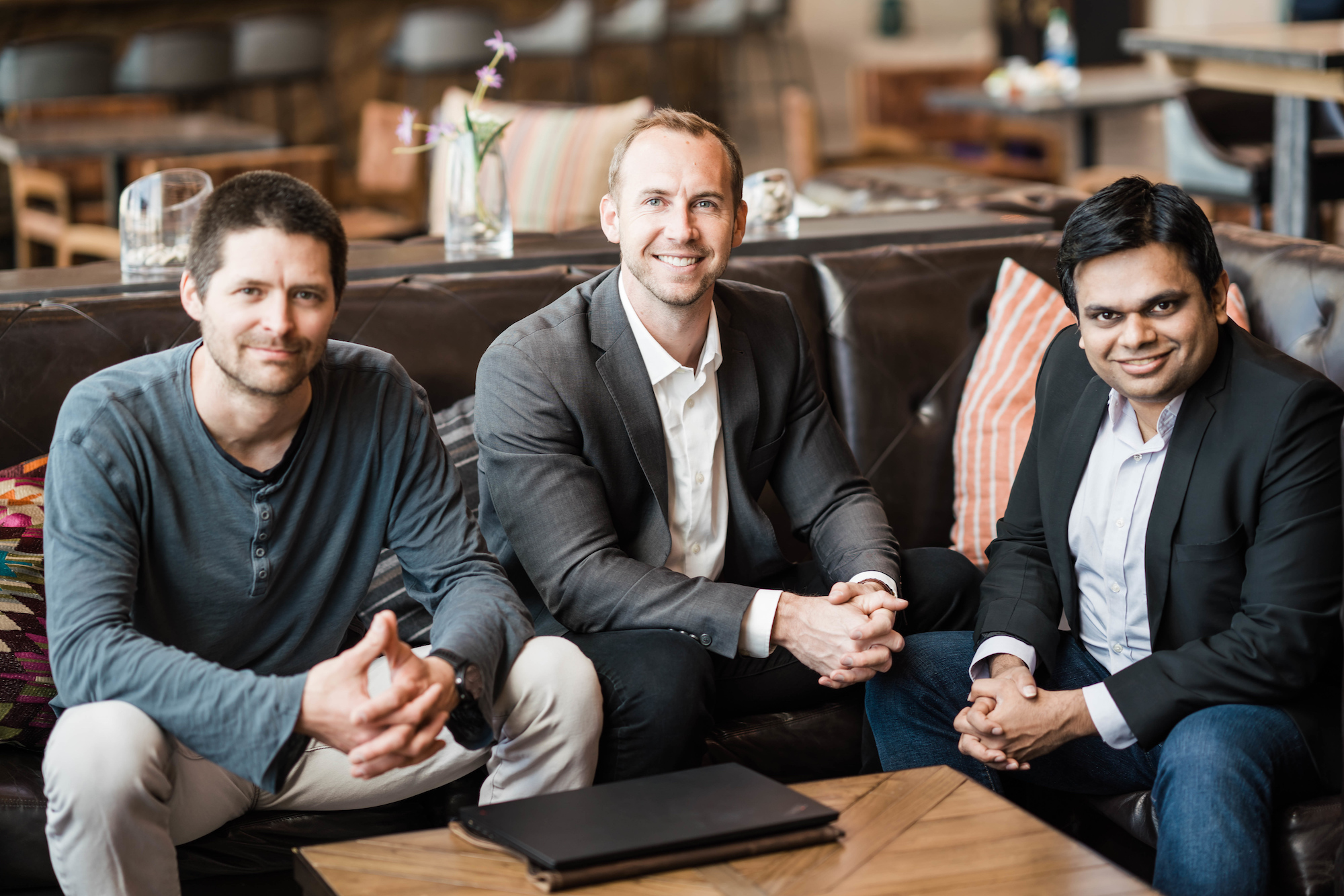Ten billion. That’s how many commercially procurable molecules are available today. Start looking at them in groups of five — the typical combination used to make electrolyte materials in batteries — and it increases to 10 to the 47th power.
For those counting, that’s a lot.
All of those combinations matter in the world of batteries. Find the right mixture of electrolyte materials and you can end up with a faster charging, more energy dense battery for an EV, the grid or even an electric airplane. The downside? Similar to the drug discovery process, it can take more than a decade and thousands of failures to find the right fit.
That’s where founders of startup Aionics say their AI tools can speed things up.
“The problem is there’s too many candidates and not enough time,” Aionics co-founder and CEO Austin Sendek told TechCrunch during the recent Up Summit event in Dallas.

Electrolytes, meet AI
Lithium-ion batteries contain three critical building blocks. There are two electrodes, an anode (negative) on one side and a cathode (positive) on the other. An electrolyte typically sits in the middle and acts as the courier to move ions between the electrodes when charging and discharging.
Aionics is focused on the electrolyte and it’s using an AI toolkit to accelerate discovery and ultimately deliver better batteries. Aionics’ approach to catalyst discovery has also attracted investors. The Palo Alto-based startup, which was founded in 2020, has raised $3.5 million to date, including a $3.2 million seed round from investors that included UP.Partners.
The startup is already working with several companies, including Porsche’s battery manufacturing subsidiary Cellforce. The company has also worked with energy storage firm Form Energy, Japanese materials and chemical maker Showa Denko (now Resonac) and battery tech company Cuberg.
This whole process starts with a company’s wish list — or performance profile — for a battery. Aionics scientists, using AI-accelerated quantum mechanics, can run experiments on an existing database of billions of known molecules. This allows them to consider 10,000 candidates every second, Sendek said. That AI model learns how to predict the outcome of the next simulation and helps select the next molecule candidate. Every time it runs, more data is generated and it gets better at solving the problem.
Enter generative AI
Aionics has taken this a step further, in some cases, by bringing generative AI into the mix. Instead of relying on the billions of known molecules, Aionics started using this year generative AI models trained on existing battery materials data to create or design new molecules targeted at a certain application.
The company is super-charging its effort by using software developed in the Accelerated Computational Electrochemical systems Discovery program at Carnegie Mellon University. Venkat Viswanathan, who was associate professor at CMU and led that program, is co-founder and chief scientist at Aionics.
Aionics has also started using large language models built on GPT 4 from OpenAI to help its scientists winnow down the millions of possible formulations before they even start running them through the database. This chatbot tool, which has been trained on chemistry textbooks and scientific papers selected by Aionics, isn’t used for the actual discovery, but it can be used by scientists to eliminate certain molecules that wouldn’t be useful in a particular application, Sendek explained.
Once trained with those textbooks, LLMs allow the scientist to query the model. “If you can talk to your textbook, what would you ask it?” Sendek said. But he was quick to note that this isn’t doing anything different than a person curating scientific papers. “This is just providing some next-level interaction,” he said, adding that everything is verifiable by pointing back to the sources used to train the chatbot.
“I think what is good for our field is that we’re not looking for specific facts, we’re looking for design principles,” he said as he explained the chatbot feature.
Picking a winner
Once the billions of candidates have been screened and narrowed down to just a couple — or designed using the generative AI model — Aionics sends its customer samples for validation.
“If we don’t get it on the first round, we iterate and we can run some clinical trials to prove it until we get to the winner,” Sendek said. “And once we find the winner, we work with our manufacturing partners to scale that manufacturing and bring it to market.”
Curiously, this process is even being used in some novel areas like cement. Chement, a startup co-founded by Viswanathan and that is also partnered with Aionics, is working on ways to use renewable electricity and raw materials to drive chemical reactions to make zero-emissions products like cement.































Comment